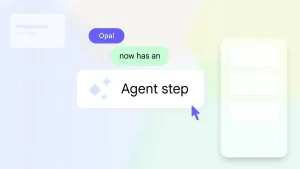Bigfoot’s AI Helps You Plan Amazing Weekends!

Bigfoot, a startup that helps people discover local events and activities, has added a new AI feature called Littlefoot. This AI chatbot acts like a wise friend, guiding users to exciting weekend plans. Co-founder Alex Ward says it’s designed to make planning easier and more fun.
Launched in late 2022, Bigfoot has a pool of over 120,000 events, restaurants, and outdoor activities across 160 cities. The goal? To make weekend planning a breeze by offering tailored activity suggestions. With Littlefoot, users can expect personalized and engaging recommendations for their local adventures!
Introduction of GenAI
California-based local experiences discovery startup Bigfoot has introduced a conversational interface to its weekend planner website. Named Littlefoot, this AI chatbot helps users find personalized and relevant local events by simulating a chat with a knowledgeable friend. Co-founder Alex Ward explains that the new feature aims to make weekend planning easier and more engaging by offering tailored activity suggestions.
Littlefoot’s AI-driven recommendations can be customized through back-and-forth text interactions. Whether it’s a hike followed by a BBQ or a cultural tour with a painting class, the feature promises to streamline the process of finding local activities. The goal is to enhance people’s weekend experiences by eliminating the hassle of planning.
Building a Local Leisure Brand
Bigfoot launched in late 2022 with initial funding from business angels and early-stage VC firms. The startup has curated over 120,000 events, restaurants, nightlife spots, and outdoor activities across 160 cities. The new AI chatbot is a significant addition to this extensive database, offering users an innovative way to explore local activities.
Unlike major platforms focusing on travel and guided experiences, Bigfoot aims to carve out a niche in local leisure. The startup’s approach combines generative AI with curated data sources to provide unique and contextually relevant activity suggestions. This strategy sets Bigfoot apart from competitors like Airbnb and Get Your Guide.
Ward, a former Airbnb employee, notes that the GenAI interface essentially relaunches the product. The team aims to secure seed funding to continue building their vision of local discovery as a platform for small businesses. The inclusion of Littlefoot is a crucial step in this direction, aiming to attract more users and increase engagement.
Tech Behind Littlefoot
Bigfoot’s AI chatbot leverages large language models (LLMs) from Anthropic, OpenAI, and Perplexity. These technologies enable Littlefoot to deliver personalized recommendations based on users’ preferences and interactions. The AI can access a variety of data sources, from mainstream content like Google Maps to specialist hiking blogs, to ensure diverse and interesting suggestions.
The chatbot’s conversational interface is designed to feel like talking to a friend, making it easier for users to find and plan activities. The AI can handle various queries, providing recommendations for everything from restaurants to outdoor activities. This flexibility aims to enhance the user experience and make weekend planning more enjoyable.
However, the reliance on GenAI also presents challenges. Instances of contextual mismatches, such as recommending indoor go-karting for outdoor activities, have been noted. These issues highlight the importance of continual refinement and user feedback to improve the AI’s accuracy and relevance.
Competitive Landscape
The market for AI-driven local experience discovery is competitive. General-purpose chatbots and AI search engines like OpenAI’s ChatGPT and Perplexity’s AI search engine already offer activity suggestions. However, these tools often provide generic recommendations, whereas Bigfoot aims for more personalized and unique suggestions.
Bigfoot’s competitive edge lies in its curated supply of local events and activities. By using a mix of mainstream and specialized data sources, Littlefoot can offer recommendations that are less obvious and more tailored to individual preferences. This approach seeks to differentiate Bigfoot from other platforms in the crowded market.
User Experience and Feedback
Littlefoot’s interface includes imagery and related TikTok videos to enrich the user experience. Unlike the text-heavy lists from general-purpose AI tools, Littlefoot offers a visually engaging way to explore activities. However, the interface is still in its early stages and requires further refinement to improve usability and functionality.
User feedback has been crucial in shaping Littlefoot’s development. Early alpha users expressed a desire for a more interactive and personalized experience, leading to the creation of the AI chatbot. The team continues to gather feedback to fine-tune the product and ensure it meets user expectations.
Future Plans
Bigfoot’s team has several ideas to enhance functionality and personalization. Future updates may include the ability to connect users’ Google Maps and Spotify accounts for more tailored recommendations. This integration aims to provide a richer and more customized experience for users.
The team is also considering expanding Littlefoot’s reach by integrating it into popular messaging apps like WhatsApp. This move could make the AI chatbot more accessible and convenient, allowing users to plan activities directly within their group chats. However, these updates will require additional funding to implement.
Challenges and Opportunities
Scaling a startup in the competitive market of local experience discovery is challenging. Bigfoot needs to continually innovate and refine its product to stay ahead. The team acknowledges the need for a robust supply of curated activities to attract and retain users.
The fundraising aspect is also critical for Bigfoot’s growth. Securing seed funding will be essential to expand the team, enhance the product, and improve marketing efforts. The startup is actively seeking partners who share their vision and can support their journey.
Bigfoot’s innovative use of conversational AI could revolutionize local weekend planning. By offering personalized and engaging activity suggestions, they aim to make local exploration more accessible and fun. However, the company must overcome challenges in refining their AI and securing funding to continue their development.
With Littlefoot, Bigfoot is positioning itself uniquely in the competitive landscape of AI-driven local experience discovery. The potential to integrate with popular apps and services indicates a promising future for this startup. As they continue to grow, user feedback and continual improvements will be key in maintaining their edge.





